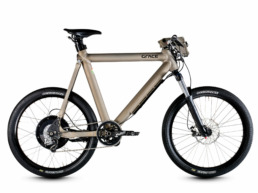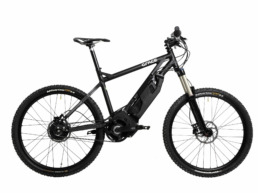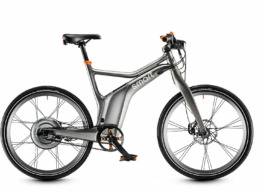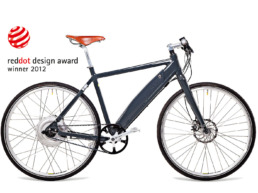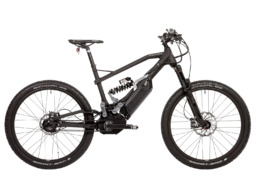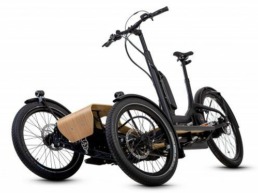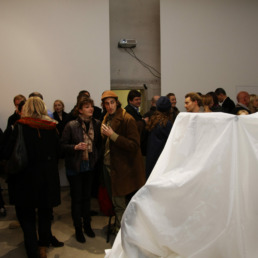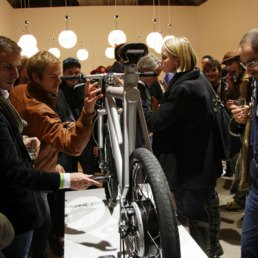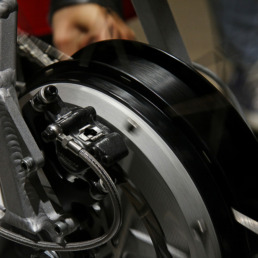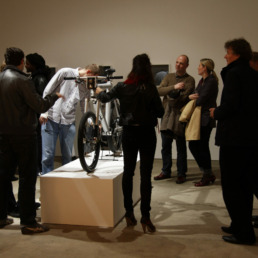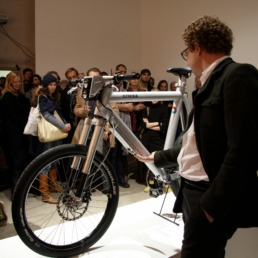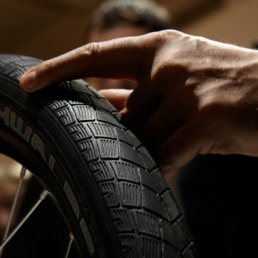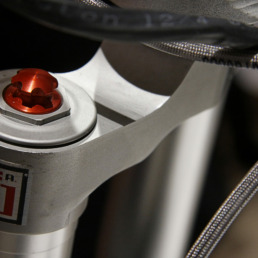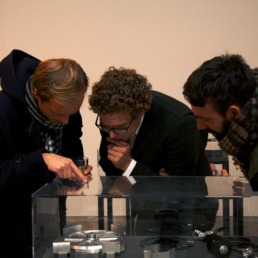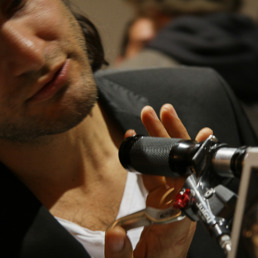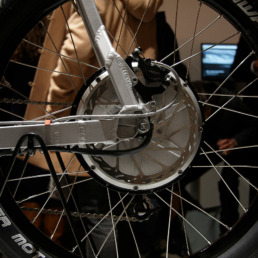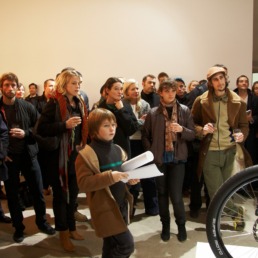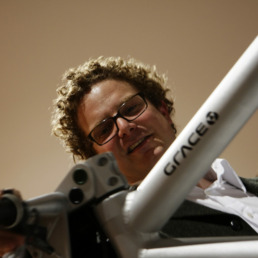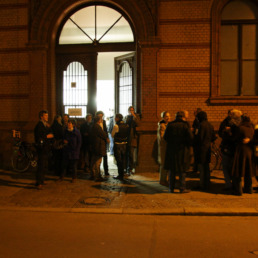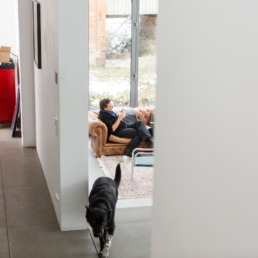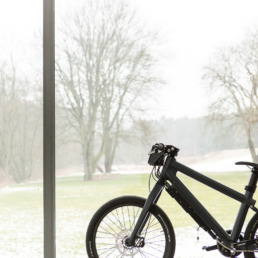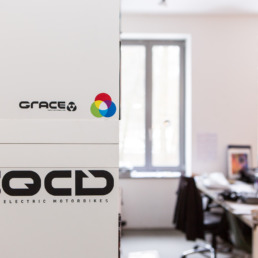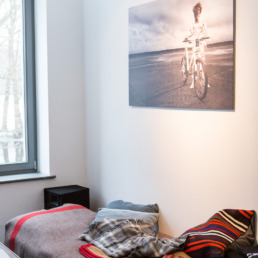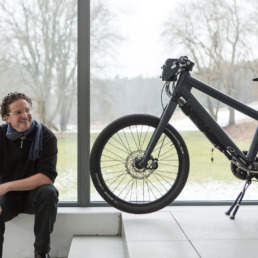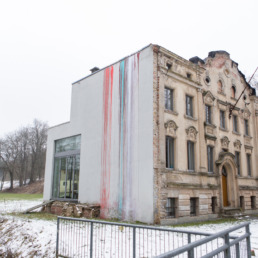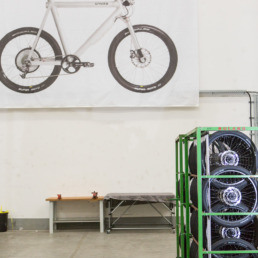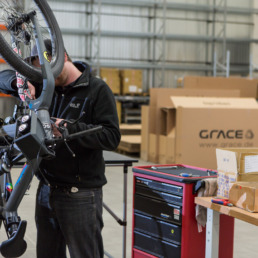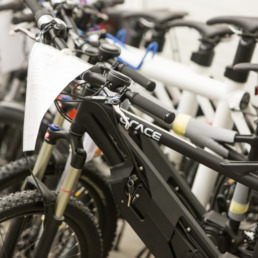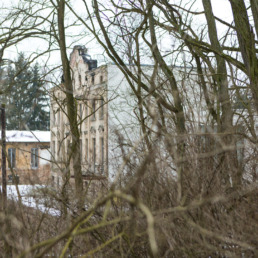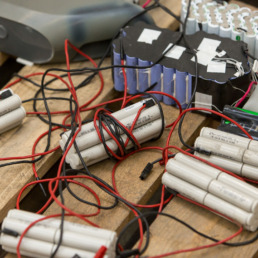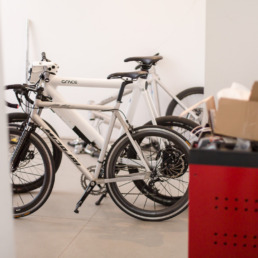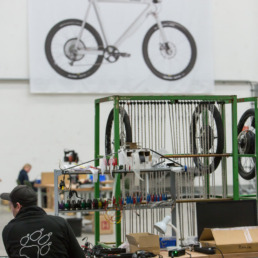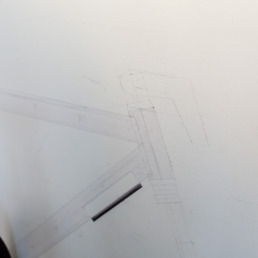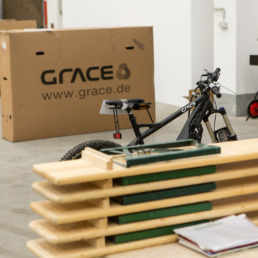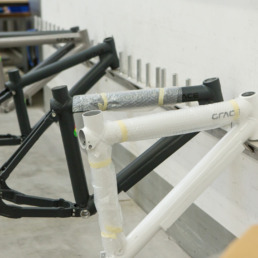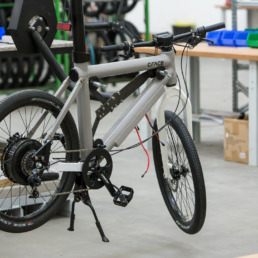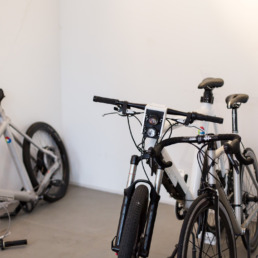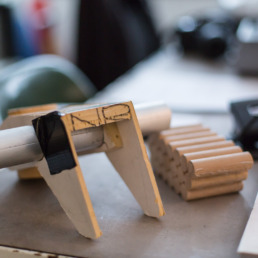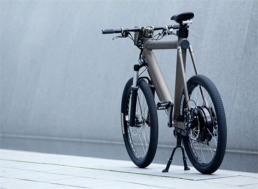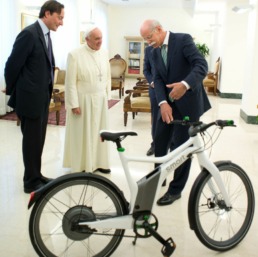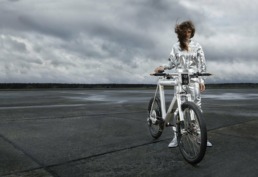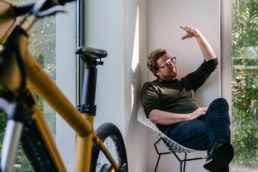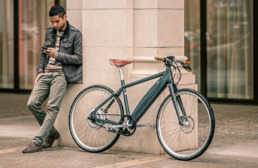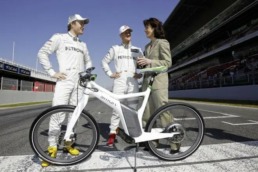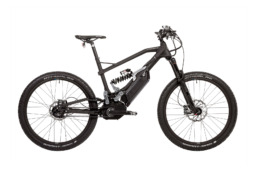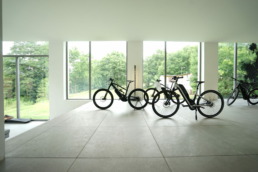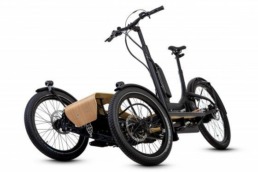A PIONEER OF E-MOBILITY
MICHAEL HECKEN
2008 – It all started in a Berlin art gallery
The presentation in the gallery was a huge success: in the following weeks, orders from all over the world came in at a daily pace. After the first 20 bikes had been assembled in Michael Hecken’s living room, the GRACE ONE went into serial production shortly afterwards – Made in Berlin. It was the first road legal e-motorbike in the world to be produced in series. With its unrestricted 65 km/h, it was a testimony to Hecken’s passion for building high-speed two-wheelers even back then.
"The Grace One is the ultimate designer piece.
It's the Bang & Olufsen of the bicycle garage".
— Uli Brée, actor, director and screenwriter
Numerous celebrities were among the first customers, including such illustrious names as Leonardo DiCaprio, Michael Schumacher, Prince Albert II of Monaco, Nico Rosberg, Til Schweiger and many more.
2011 - the smart ebike and the belt revolution
GRACE had taken off like a rocket. Within two years, three new models had been created, and with larger production halls in Berlin, the team had just set the course for further expansion. The GRACE ONE was already a pioneering achievement – but with Grace EASY and Grace MX, Hecken’s team set out to revolutionise the new industry: For the first time on an e-bike, the wear-sensitive chain drive was replaced by a combination of carbon belt and continuously variable transmission. The GRACE EASY, still without continuously variable transmission, later won the renowned Red Dot Design Award, while the Grace MX made history as the world’s first bike with belt drive, continuously variable transmission and Bosch drive. Today, this combination can be found virtually anywhere in the premium sector. Across all manufacturers, it is now considered the gold standard of zero maintenance.
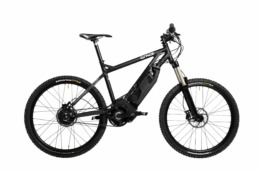
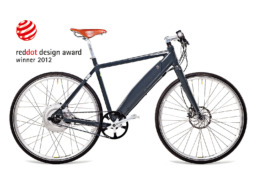
Right from the start, the demand for GRACE’s avant-garde vehicles was enormous. Naturally, the expansion of production capacities was a mammoth task. And this was not only in terms of personnel and operations, but also financially. In the beginning, GRACE was able to grow well with venture capital and thus maintain a certain independence for several years. However, it soon became apparent that the company would have to expand faster than initially expected: In the course of 2011, Michael Hecken succeeded in acquiring an order from Daimler AG for the development and construction of the smart ebike – and of course this vehicle was also to get the trend-setting carbon belt drive.
In an impressive presentation, Dieter Zetsche, then CEO of Daimler AG, introduced the futuristic-looking bike at the 2012 Paris Motor Show. Smart’s modular mobility concept, consisting of train, small cars and e-bikes, struck a chord. Right after its presentation, the smart e-bike also won the prestigious Red Dot Award. In summer 2013, Daimler CEO Dieter Zetsche gave Pope Francis a smart ebike when he visited him for a much-noticed audience in the Vatican. In the end, Daimler ordered a full 15,000 of the coveted designer piece – an order worth over 20 million euros. For a company just two years old, this was an outstanding achievement, but also a great challenge.
2012 - From start-up to corporate brand
With the Daimler order at the latest, it was clear that enormous investments were needed if further growth was not to be jeopardised. After all, Daimler alone had a five-digit number of bikes at stake – and an order volume of extraordinary proportions. So new, courageous and, above all, big partners had to come on board. Really big ones. At that time, Germany’s largest bicycle manufacturer was MIFA AG, and investor Carsten Maschmeyer had just acquired 30% of MIFA. Through an indirect personal contact that Michael Hecken had with Maschmeyer, the MIFA board became aware of the new GRACE. No question, the brand was a perfect fit for MIFA’s ambitious plans. And so it didn’t take long until agreement was reached…
"We came along with a Daimler order worth tens of millions, all ready to go. The goods were in stock and all they had to do was just to sign the contract."
- Michael Hecken on the MIFA negotiations
In 2012, MIFA took over Grace GmbH & Co KG and then integrated it into MIFA operationally, organisation-wise and in personnel terms. Initially, the takeover also turned out to be a lucky strike – not only for MIFA, but especially for the two founders Michael Hecken and Karlheinz Nicolai. They were now free from the burdensome tasks of management. As employees of MIFA, they could fully focus on what they did best: Design, marketing and technology.
MIFA AG was listed on the Frankfurt Stock Exchange, and the new team took advantage of the opportunity: Before the end of 2012, MIFA CEO Peter Wicht and Michael Hecken took the MIFA 2.0 Story on a “capital market tour” through Europe – Peter Wicht as sole member of the board, Michael Hecken as Head of Marketing and Sales. Hecken was able to communicate the e-bike story so successfully that in almost no time he managed to acquire almost 36 million euros on the capital market for the further expansion of the company with the GRACE brand.
2014 – The fall of MIFA AG
It was an irony of fate that MIFA AG collapsed like a house of cards just two years later. Bankruptcy came in September 2014, and it came out of the blue. As recently as late 2013, not even the chartered accountants had seen anything coming.
But what exactly happened to MIFA in 2014? Looking back, the story actually seems unbelievable:
Assets of the corporation had disappeared or existed only on paper, costs had been underestimated. And no manager, no auditing firm had noticed this in time. It was to take years to work through this scandal: In an extensive fraud trial, MIFA AG’s then CEO was sentenced guilty by the District Court of Sangershausen in September 2021.
Without any doubt, 2014 was a nightmare year for GRACE. But above all, it was a disaster for MIFA’s employees. And of course for all those who now owned worthless shares in MIFA. Michael Hecken, who had placed all his bets on Grace, was apparently faced with the ruins of his life’s project.
2015 - Back to square one: Hecken, Nicolai & Friends
Sure, many would have resigned in such a situation. But Hecken and Nicolai wanted to take another crack at the game: With a great media bang, they founded HNF GmbH in 2015. “HNF” was a statement, an abbreviation for “Hecken, Nicolai & Friends”. So the motto was “Friendly business among friendly people”. More innovative ebikes followed: In 2016, the HNF CD1 intrigued the experts as the world’s first cargo bike with patented tilting technology. Also standard-setting was the HNF XF1, a fully suspended, all-terrain e-bike that with a belt drive and a sophisticated powertrain swingarm from BMW was ahead of its time.
2019 - HERO CYCLES takes a stake in HNF
After the blaze of new e-bikes and a correspondingly rapid growth in sales, it was clear by the beginning of 2019 that HNF GmbH had finally emerged from the start-up stage. New investors were interested in the company. Among them was HERO CYCLES Ltd, the world’s largest bicycle manufacturer in unit numbers. In several investment rounds, the HERO Group successively took over the majority of HNF GmbH from November 2019.
HERO had big plans and wanted to use HNF to open the door to the European premium market, creating a broad dealer base similar to that of the Indian domestic market.
Michael Hecken, who since the takeover by HERO has headed sales and marketing as CMO, then achieved a rapid expansion of sales: Within less than two years, more than 500 of Germany’s and Europe’s best retailers were taken on board with sales figures multiplying. Without a doubt, building up such a broad sales structure in such a short time was Hecken’s sales masterpiece.
Hecken continues to advise the company to this day.


